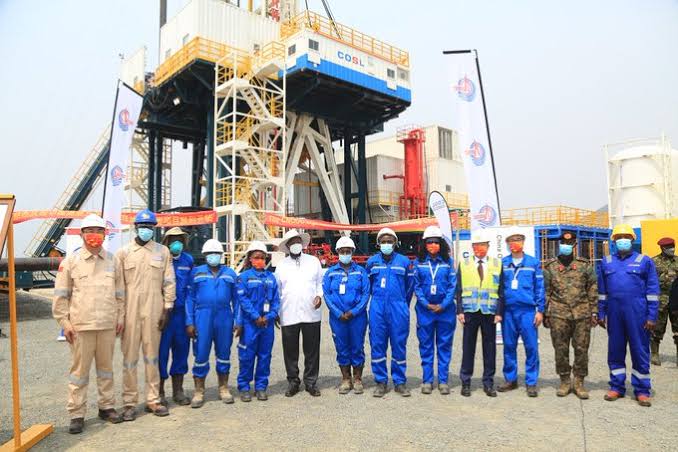On Tuesday, February 21, Tanzania agreed to build the $3.5 billion East Africa Pipeline (EACOP).
The 1,443-kilometer (900-mile) pipeline will transport crude oil from major oil fields being built in Uganda’s Lake Albert to a Tanzanian port on the Indian Ocean.
The pipeline required permits from both countries, and Uganda granted a permit (EACOP) to the project operator, the East African Pipeline, last month.
At the permit certification event, Tanzanian General Manager of the East Africa Pipeline, Wendy Brown, noted that the project permit marks another milestone for the East Africa Pipeline.

It is being developed in collaboration with China National Offshore Oil Corporation (CNOOC), France’s TotalEnergies and Uganda’s state-owned National Oil Corporation.
The oilfield and pipeline project has met strong opposition from human rights activists and environmental groups, who say it endangers the region’s fragile ecosystem and threatens the lives of tens of thousands of people.
Also, read; Rapper Nipsey Hussle’s killer sentenced to 60 years to life in prison
This opposition has also been felt by Ugandan President Yoweri Museveni since last year, after he insisted that he plans to make oil exploration an important part of the Ugandan economy.
In 2022 and 2023, Uganda’s President faced protests from environmental groups such as Friends of the Earth, the European Union, and Uganda’s Indigenous Environmental Groups to take advantage of the development of projects they concluded would benefit the would displace local populations.

Notwithstanding this, he stated this year that Uganda’s goal of becoming a major oil exporter in Africa still stands, as he promised to greatly improve Uganda’s economy through oil trade.
The energy gap created by the conflict between Russia and Ukraine offers Africa an opportunity to fill a significant share of the global oil market. As a result, more and more oil exploration projects have been launched across the continent, and the East African subcontinent is no different.

